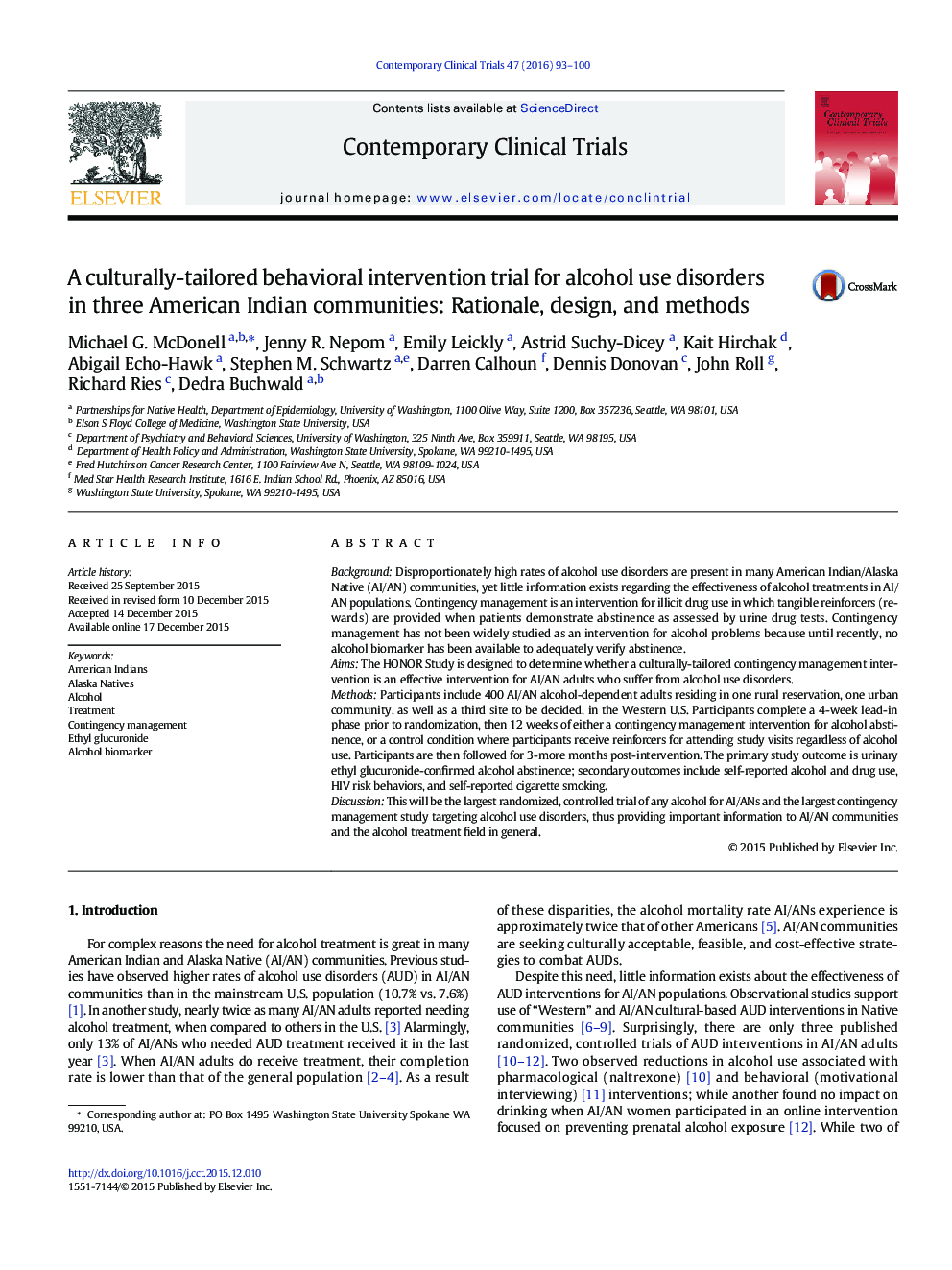| Article ID | Journal | Published Year | Pages | File Type |
|---|---|---|---|---|
| 6150706 | Contemporary Clinical Trials | 2016 | 8 Pages |
BackgroundDisproportionately high rates of alcohol use disorders are present in many American Indian/Alaska Native (AI/AN) communities, yet little information exists regarding the effectiveness of alcohol treatments in AI/AN populations. Contingency management is an intervention for illicit drug use in which tangible reinforcers (rewards) are provided when patients demonstrate abstinence as assessed by urine drug tests. Contingency management has not been widely studied as an intervention for alcohol problems because until recently, no alcohol biomarker has been available to adequately verify abstinence.AimsThe HONOR Study is designed to determine whether a culturally-tailored contingency management intervention is an effective intervention for AI/AN adults who suffer from alcohol use disorders.MethodsParticipants include 400 AI/AN alcohol-dependent adults residing in one rural reservation, one urban community, as well as a third site to be decided, in the Western U.S. Participants complete a 4-week lead-in phase prior to randomization, then 12Â weeks of either a contingency management intervention for alcohol abstinence, or a control condition where participants receive reinforcers for attending study visits regardless of alcohol use. Participants are then followed for 3-more months post-intervention. The primary study outcome is urinary ethyl glucuronide-confirmed alcohol abstinence; secondary outcomes include self-reported alcohol and drug use, HIV risk behaviors, and self-reported cigarette smoking.DiscussionThis will be the largest randomized, controlled trial of any alcohol for AI/ANs and the largest contingency management study targeting alcohol use disorders, thus providing important information to AI/AN communities and the alcohol treatment field in general.
